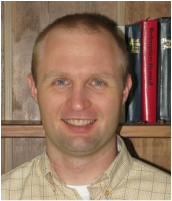Two revolutions in the last part of the 18th century and the first part of the 19th century created anxiety for the elites in Great Britain. The French Revolution across the channel ended the monarchy, the King and Queen’s lives, the role of the church, and order. The Industrial Revolution transformed British society from agrarian to urban which produced arduous working conditions and slums for homes. The British elites feared that in response to these conditions a movement inspired by the French Revolution would ignite a third violent British Revolution.
To pour water on the tender that awaited a match, the elites turned to teaching morals. The church would be the center of instructing the citizens on how to be obedient. Yet the church needed a dedicated time to instruct those laborers, who worked long hours including some on Sunday. Hence, many elites adopted the Sabbatarian cause. By their example and through legislation, the leaders of the nation encouraged citizens to go to church to tame man’s vilest passions and avoid a French Revolution on British soil.
Despite being born in a time of renewed Sabbatarian zeal for national purposes, Charles Spurgeon’s adherence to the Sabbath had deeper roots. He did not fear a third revolution, but he feared God’s Word. He was a Sabbatarian by theological conviction who agreed with the Second London Confession of Faith (1689) which taught that Sunday was to be observed as a Christian Sabbath. How did he justify this belief?
First, he considered the Sabbath to be a creation ordinance. Spurgeon argued, “And yet the Sabbath had not been instituted according to the law, which proves that its foundation lay deeper and earlier than the promulgation of the Ten Commandments; it is bound up with the essential arrangement of time since creation.”[1] Thus, he believed the Sabbath to be for all people, and it was not abolished with the Old Covenant.
Jesus’ example did not abolish the Sabbath, but it gave Christians an accurate portrayal of Sabbath observance.
Second, he believed the observance of the Sabbath changed from the seventh day of the week to the first day due to the resurrection of Jesus Christ. Spurgeon wrote, “The first day of the week commemorates the resurrection of Christ, and following apostolical example, we have made the first day of the week to be our Sabbath.”[2] If Jesus had not risen from the dead, then Christians would have no hope of eternal life. The unsealed empty tomb sealed a believer’s redemption. Spurgeon affirmed this point. “We gather together on the first rather than upon the seventh day of the week, because redemption is even a greater work than creation, and more worthy of commemoration, and because the rest which followed creation is far outdone by that which ensues upon the completion of redemption.”[3]
Third, Jesus did not abolish the Sabbath but interpreted it rightly when he rebuked the Pharisees. Spurgeon taught that Jesus,
took care to do some of his grandest miracles upon the sabbath-day; and though this excited great wrath against him, as though he were a law-breaker, yet he did it on purpose that they might see that the Sabbath was made for man and not man for the Sabbath.… The sum of our Lord’s teaching was that works of necessity, works of mercy, and works of piety are lawful on the Sabbath.[4]
Spurgeon, therefore, did not view the Christian Sabbath as a day of inactivity. Rather, a person should rest from his normal labors to labor for the Lord. Through works of piety, individuals should attend Church services to worship God, set aside time in the home for prayer and reading, and serve in Sunday schools, street evangelism, and visitation. By works of mercy, Christians serve as nurses, doctors, and care for sick children. For works of necessity, believers cook meals, walk to church, are employed as soldiers, firefighters, and policemen. For Spurgeon, Jesus’ example did not abolish the Sabbath, but it gave Christians an accurate portrayal of Sabbath observance.
Consequently, due to Spurgeon’s Sabbath convictions, he would preach for sinners to repent of their Sabbath breaking. To his hearers, he proclaimed, “Weary sinner, hellish sinner, thou who are the devil’s castaway, reprobate, profligate, harlot, robber, thief, adulterer, fornicator, drunkard, swearer, Sabbath-breaker—list!”[5] He grouped Sabbath breakers with the worst of the worst in Victorian society. For Spurgeon, Sabbath breaking broke the fourth commandment in the same manner as adultery broke the sixth commandment.
To that end, Spurgeon advocated for a third revolution though spiritual and not political. He desired to see sinners saved and to joyfully obey God’s commandments out of gratitude. Arthur Morgan is one example of a man whom the Holy Spirit regenerated. In an interview for church membership, an elder at Metropolitan Tabernacle recorded Morgan’s testimony.
He feels now what a precious Saviour Jesus is. He loves him with all his heart and wishes to live only for and with him. He now feels a constant desire to love Jesus more and more. Prayer and the reading of the Scriptures and the Sabbath is his delight now whereas once he cared for none of these things.[6]
[1] Spurgeon, MTP, 39:526.
[2] Spurgeon, MTP, 19:205.
[3] Spurgeon, MTP, 26:194.
[4] Spurgeon, MTP, 28:278-279.
[5] Spurgeon, NPSP, 1:40.
[6] Hannah Wyncoll, Wonders of Grace: Original Testimonies of Converts During Spurgeon’s Early Years, 35.























